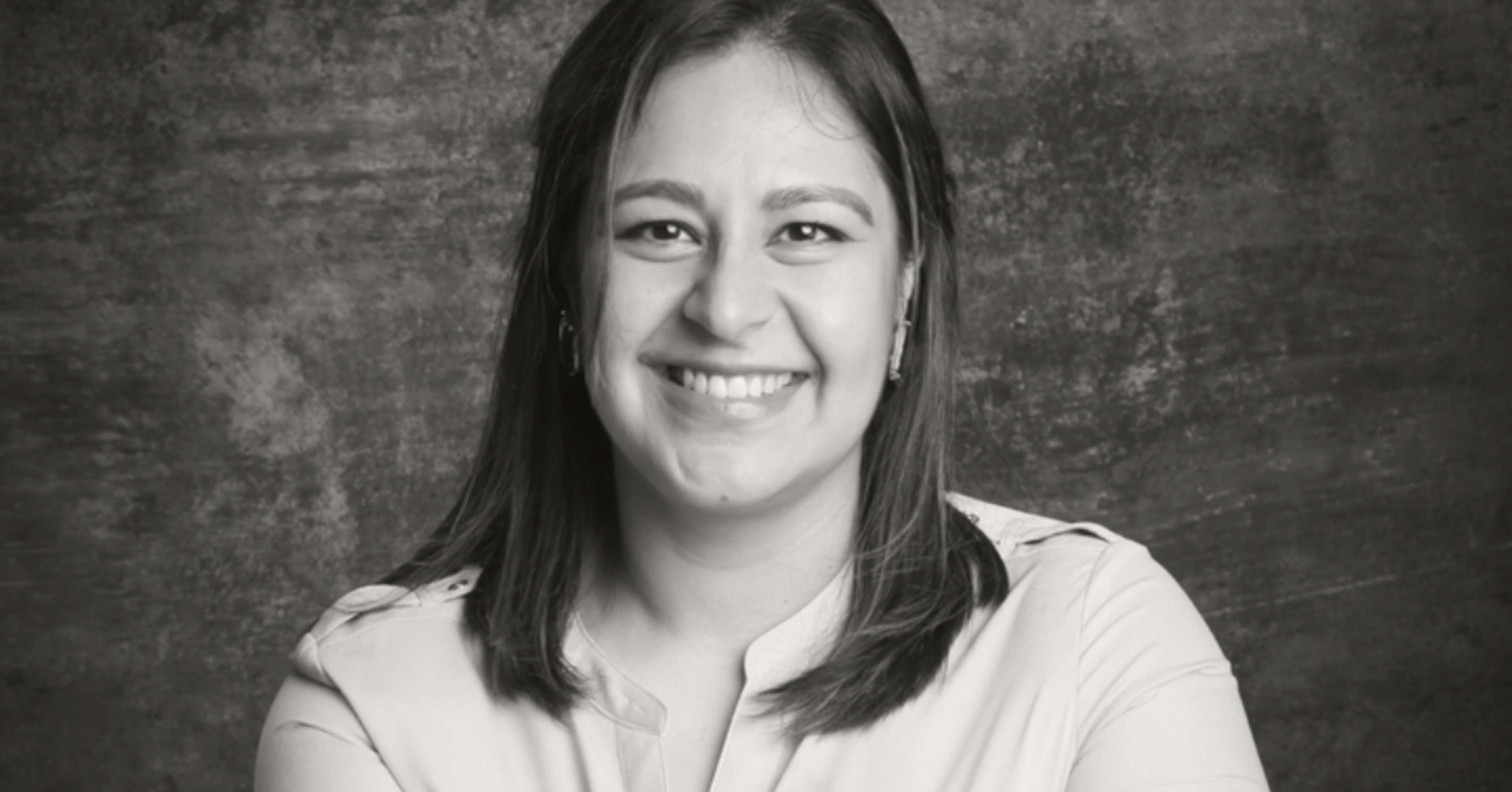It’s Practitioner Spotlight time again, and this week I got to speak with the lovely Dr Natasha Verma of Skin NV. If you like hearing about how practitioners get into aesthetics, you’ll love this one! Dr Natasha also shares her experience of starting a business during the pandemic, and her hopes for the future of aesthetics.
Practitioner Spotlight: Dr Natasha Verma
Hi Dr Natasha! Tell me all about your journey into aesthetic medicine.
My journey started quite a few years ago. I qualified as a dentist in 2009 and I knew a practice setting would be my end destination, but I didn’t want to stop learning, so I applied for more surgical positions. I worked as a paediatric dentist, I worked with special needs patients, and I worked in head and neck surgery, where I completed my training. I then decided to move from Newcastle to London for a surgical position, which I absolutely loved.
While working in a hospital, there was one patient in particular who opened up my eyes to aesthetic medicine. I remember everything about her: she was exceptionally stunning, really beautiful and successful, but she had been walking home from work one day and was assaulted by her ex-boyfriend at the age of just 32. She suffered a lot of facial injuries and had multiple surgeries to rectify or manage those injuries, but as a result of that, she had a lot of scars on her face. I was there for a lot of the surgeries, including the final scar repair surgery. In this particular one, I was taking her consent and, basically, had to ask her the question, “Are you happy to move forward with the procedure given all of the information I’ve provided you with?” She sat there and she replied, “Well it’s not as if I have a choice.” I couldn’t understand this for a while, but then I realised that what she meant was if she didn’t have the surgery, the scars would still be there to remind her of what happened.
I really felt for her and her story stayed with me. While working in dental practice, I started doing a bit more research into aesthetic medicine, skin rejuvenation, and other non-surgical options, and that’s how I fell into aesthetic medicine. I owe my career to that particular patient. It was her that made me realise that, ultimately, there’s a much bigger calling for me.
Skin is so important - not just as a barrier, but also in terms of wellbeing, mental health and self-confidence. This is the face that we display to the world. If we don’t feel confident, how are we expected to achieve what we want to? A lot of what we do is associated with what’s underneath.
That’s an amazing story! You obviously care a lot about patient well-being. And it just goes to show that aesthetic treatments are about so much more than vanity; they help people in so many ways.
Absolutely. And there are people who are led down that route, and that’s where I feel that education is such a big thing. It’s not just about enhancing certain features; it’s about really addressing the reason why you want this feature enhanced. For example, one of my patients came to me about the shape of her lips. I really wanted to get to the bottom of why she was there, so I asked her how long it had been bothering her. She broke down in tears and explained that she’d been bullied for years for having ‘manly’ lips, purely because she didn’t have the typical lip shape we associate with femininity. As a result of which, she didn’t smile, as she felt it drew attention to her thin lips, and she didn’t apply lipstick or gloss. Her self-confidence had really diminished and she had never even taken a selfie, and would hide in the back when taking photos.
I started small with just ¼ ml of lip filler and then up to ½ ml over several sessions, and with just this ½ ml she was so ecstatic. She started taking selfies and she bought and used several shades of lipstick. So, yes, you could say it’s vanity, but when it starts to bother you to the point where you start to adapt your life, there’s so much more to it - and that’s why I believe there’s so much more about the human body and the general holistic approach that we need to consider. My brand is, primarily, about prioritising yourself and making sure every choice you make about yourself is for you.
When did you decide to open your own clinic, and what challenges did you face?
I’d always wanted my own clinic and to work for myself and I took the leap after my son was born in July 2019, whereby I started working on my website and was ready to begin working in two clinics. But then lockdown happened in March 2020 and, unfortunately, those clinics didn’t survive. They were such beautiful brands and people in terms of their ethos, so it was a real shame.
It’s been a very long journey and the pandemic hasn’t helped, but there’s so much I’ve learnt in the background about how to establish a company well. When you’re jumping into this and you know you suddenly have to be an entrepreneur first and a medical professional second, it’s all very daunting. You know your salary isn't going to come from this initially; you have to invest in a bit more time and effort before you see the rewards.
However, the support I’ve received from my husband has been invaluable. I needed someone to remind me that this wasn’t just an off the cuff decision - it’s something I’ve wanted to do for such a long time.
It’s really daunting to just change your career - especially if you’re medically qualified and you just assume that once you’ve qualified, you’re set up for life. You have a specific job in a specific environment and that’s that. But if you take the plunge in an area like aesthetics, which, though it’s been around for years, still feels relatively new, it can be scary. There’s not a lot of cushioning if things go wrong or if there are difficulties along the way.
I can imagine that must be daunting. But you clearly have the passion to succeed. What have you learnt along the way?
It’s about knowing what you need and knowing where to get it - i.e. which professionals to contact and knowing exactly what you need them to do for you. SEO, social media, marketing...that’s a whole other world entirely. Knowing which apps are required to schedule posts and things like that are all things you need to consider. As is the importance of reviews, email marketing, having engaging content...I never would have thought about any of that a year ago because I was so busy focusing on the clinical aspect.
I know now that I have the foundation and that when lockdown is lifted and clinic doors are open, I’m ready to go, and then I can focus more on the clinical aspect. If I hadn’t had the chance to develop my business digitally before opening the clinic, I would have been managing both at the same time, which would have been difficult. So, it definitely has given me time to know what I want in the future.
Sounds like you used the time well! What are your goals for the future?
I want to help as many individuals as I can, raise awareness that there are other options than just the extreme treatments and products out there, and educate clients that one size doesn’t fit all when it comes to aesthetic treatments. Bespoke treatments and approaches are much more beneficial. The other thing I want to do is really keep this field within the medical realm, to protect as many people as possible.
I’m also doing a Masters in Aesthetic Medicine, and for my dissertation, I’m working on the use of botulinum toxin for facial asymmetry in facial palsy patients. Studies show that quality of life decreases in these people, so if we can do something about it, non-surgically, and we’re able to move treatment from hospital to practice so there’s less waiting time (and so it’s less daunting), all the better. All the while making sure we’re keeping these treatments in the medical sphere.
When people come to me and they ask why my prices are higher than, for example, the lady down the road, I explain that a beautician may have access to the same equipment, but a mechanic may have some equipment they can use to take out a tooth, but you wouldn't go to a mechanic for a tooth extraction. A mechanic would, obviously, do it for a cheaper price. I want patients to know who they are trusting with their face. You only get one chance!
Love that summary! Thanks so much for sharing your story with us, Dr Natasha, and I can’t wait to see how things go once clinic doors reopen.

